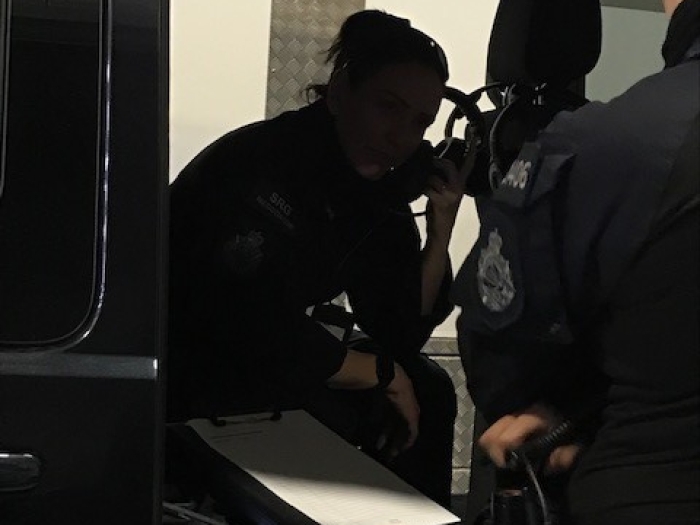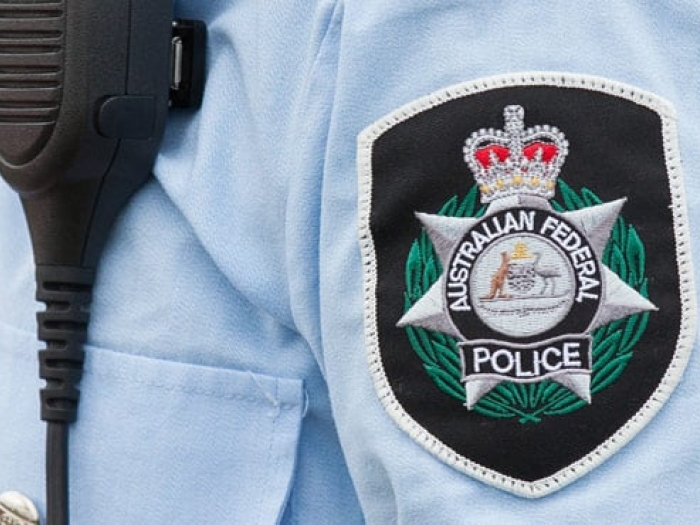Increased notices to INTERPOL to help keep Australians safe
The AFP today acknowledges INTERPOL’s 100th anniversary as the number of INTERPOL notices created for Australian law enforcement agencies increased by 50 per cent in the past year.
AFP Commissioner Reece Kershaw attended the 91st INTERPOL General Assembly in Vienna this week to discuss critical global threats, including serious transnational organised crime.
Commissioner Kershaw said a 50 per cent increase in the publication of Australian-requested INTERPOL notices targeting fugitives and serious criminal offenders underscored why the AFP maintained and built on international networks.
“About 70 per cent of transnational serious organised crime syndicates targeting Australia are based offshore,’’ Commissioner Kershaw said.
“To help disrupt crime or bringing perpetrators to justice requires meaningful and trusted international networks, and INTERPOL is one key partner that helps Australian law enforcement agencies keep our citizens safe.
“Global crime demands a global response and the AFP will continue to ensure Australia is a hostile environment to the criminal environment.
“In essence, it means the AFP will use arrests, disruptions or frustration, to make it too hard or too costly for criminals who target Australia, whether the crime is illicit drug trafficking, cyber crime or online child exploitation.”
The Australian INTERPOL National Central Bureau (NCB), which is part of the AFP’s International Command in Canberra, facilitates Australian and foreign law enforcement inquiries 24 hours a day, seven days a week, with 194 other member countries.
In the past 12 months alone, NCB Canberra has actioned almost 5000 law enforcement referrals – including more than 500 threats to life or self-harm.
Commissioner Kershaw’s participation at the General Assembly will update and improve organisational direction and priorities, and will help reinforce and strengthen relationships with partners from across the world.
“There has been a number of key achievements between the AFP and INTERPOL since Australia became a member of INTERPOL 75 years ago,’’ Commissioner Kershaw said.
“In particular, I reflect on the great outcomes achieved through INTERPOL’s International Child Exploitation Database (ICSE) in coordination with the AFP-led Australian Centre to Counter Child Exploitation (ACCCE).
“Since ICSEs establishment, it has resulted in 860 victims removed from harm in Australia alone and another 35,000 victims identified and almost 16,0000 offenders arrested worldwide.
“With other member countries, the AFP has also has facilitated joint collaboration across all crime types. This includes targeted efforts against the mafia and ‘Ndrangheta through the INTERPOL Cooperation Against ‘Ndrangheta (I-CAN) project, counter-terrorism, cybercrime and recovery of culturally significant artefacts for countries around the world.”
INTERPOL Notices and Diffusions are a form of global notification and a request for information on persons wanted with a view to extradite (Red Notice), intelligence gathering (Blue Notice), warnings (Green Notice), unidentified human remains (Black Notice) and missing persons (Yellow Notice). These important tools support global cooperation across borders in an increasingly transnational criminal environment to target criminals, support the rule of law and to protect communities and individuals.
Each year, 30,000 to 40,000 Notices and diffusions are circulated around the world. Australia has more than 1300 requested Notices and Diffusions in circulation supporting Australian law enforcement agencies inquiries.
Since joining INTERPOL in 1948, Australia’s NCB has worked to strengthen community safety, border security and enhance operational outcomes.
Then Victorian Police Commissioner Alexander Duncan represented Australia at the General Assembly of the International Criminal Police Commission in 1948, and returned to Australia to establish NCB Melbourne as the Australian National Central Bureau (NCB).
All Australian police jurisdictions originally contributed to the statutory payment on a pro-rata basis allowing them control of the NCB, choice of the Australian representative and selection of the delegation to the General Assemblies.
In 1973, all Australian police commissioners agreed to Prime Minister Gough Whitlam’s proposal to transfer the NCB from Melbourne to Canberra and to the Commonwealth Police. This happened on 1 January, 1975, and the Government directed that the Commonwealth Police (now AFP) would fund and manage Australia’s contribution.
Growing from a small number of member countries to 195 today, INTERPOL supports law enforcement cooperation and action targeting criminals and unlawful activity across the globe.
While the AFP has an international network deployed around the world, the AFP’s engagement with INTERPOL complements and supports the capabilities available through the AFP network and other important international relationships.
The AFP’s Museum holds key historical items relating to INTERPOL and during September 2023, displayed a number of key documents and objects in the AFP’s National Headquarters in Canberra.
Some of the items included:
- A 1967 booklet: International Criminal Police Organization Pickpockets – a guide for INTERPOL members about recognising and arresting pickpockets. The booklet contains information on about 143 international pickpockets known to be active and persistent offenders.
- A 1978 glossary of drugs terminology and how they were referred to back in the 1970s.
- 1983 and 1996 Red Notices – Robert Trimbole, aka 'Aussie Bob' Trimbole, and businessman Christopher Skase.
Connect with us:
Follow our Facebook, Twitter, LinkedIn, Instagram and YouTube pages to learn more about what the AFP does to keep Australia safe.




